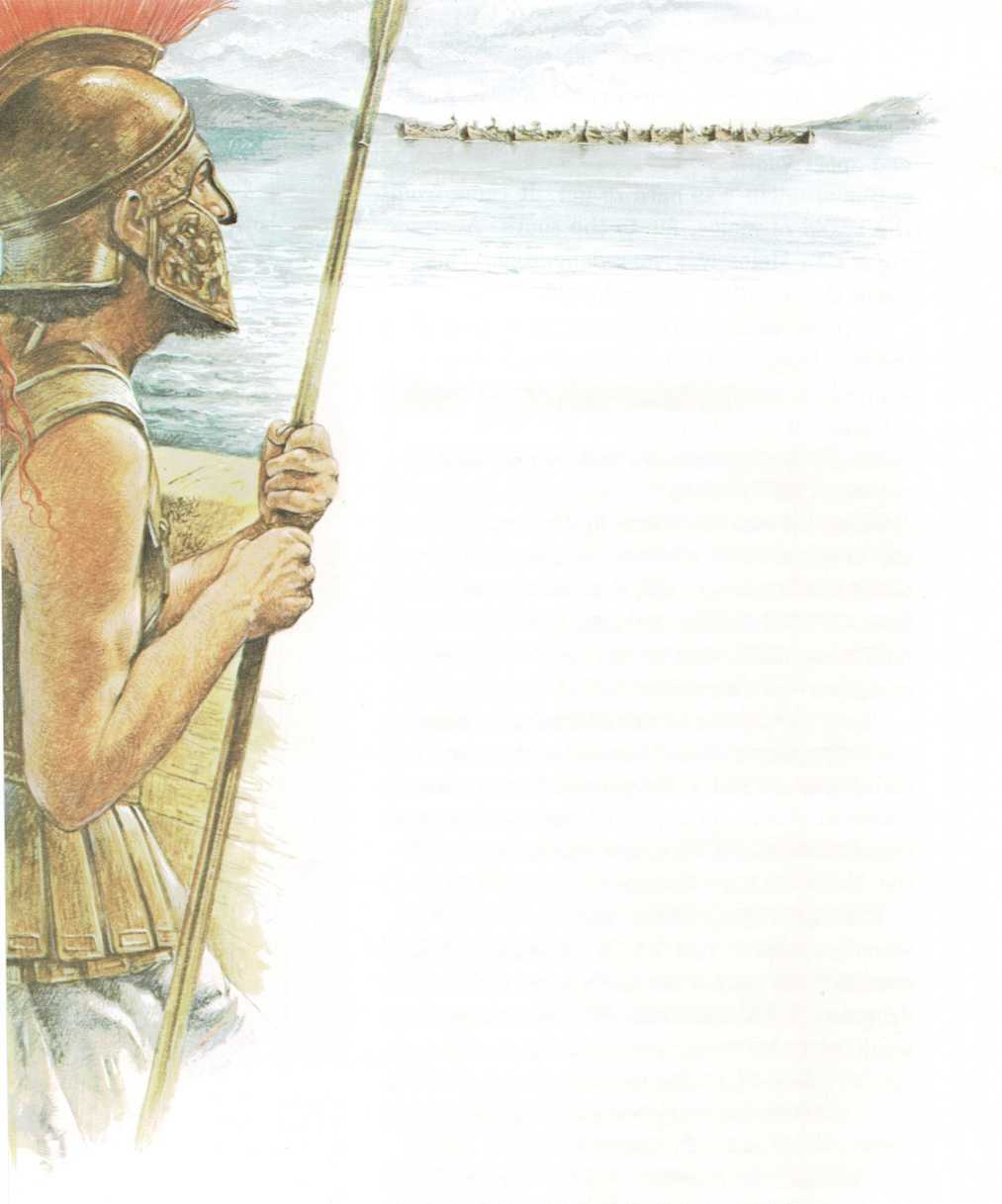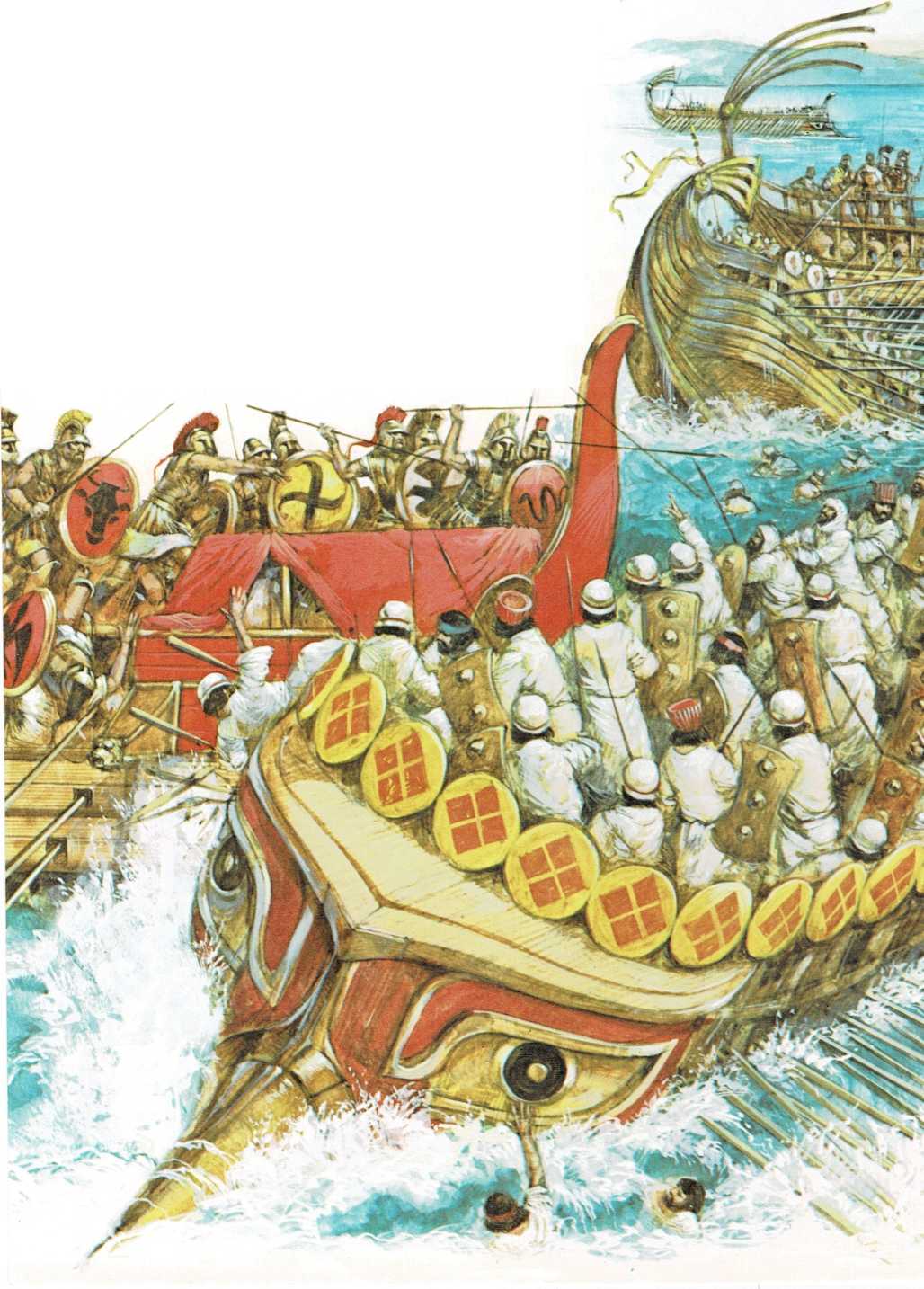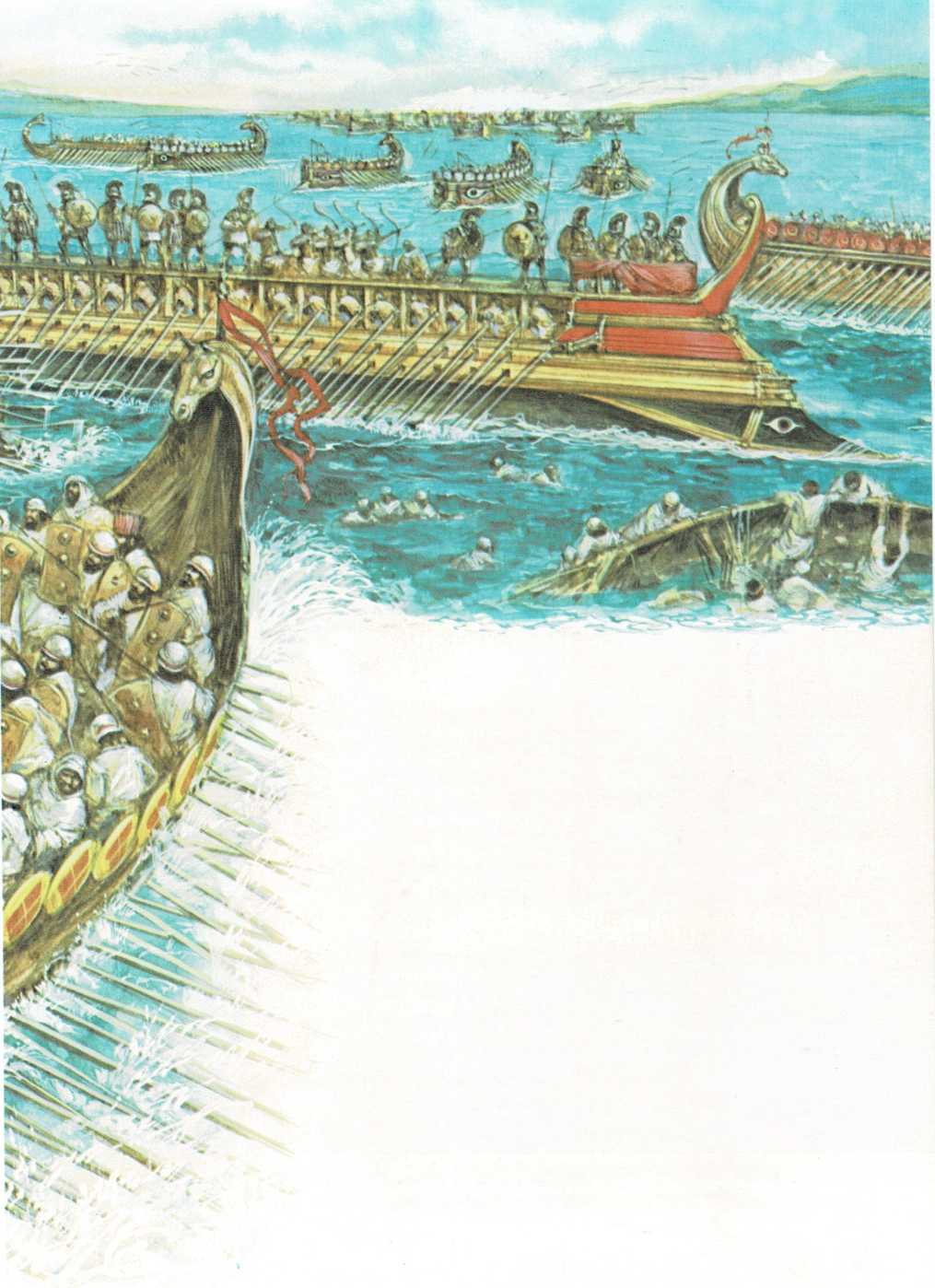
War on the water
The Greek leader, Themistocles (thuh [mihs]{.smallcaps} tuh kleez), knew
that the Persian fleet had to be defeated. The Persian army would then
be without supplies or reinforcements. But how could he get the Persian
ships to fight the smaller Greek fleet in a place where the Greeks might
have an advantage?
Themistocles decided to trick the enemy. Pretending that he was a
traitor, he sent a message to the Persian emperor, Xerxes
[(zuhrk]{.smallcaps} seez). The message said that the Greek fleet could
be found off the island of Salamis [(sal]{.smallcaps} uh muhs), about
ten miles from Athens. But the ships were getting ready to sail. If
Xerxes acted quickly, he could trap the Greeks and capture their entire
navy.
The trick worked! Xerxes could not resist the chance to capture the
Greek fleet. He ordered his ships to sail to Salamis.
Themistocles had chosen the place of battle well. To attack the Greeks,
the Persian ships would have to pass through a narrow place, or channel.
There was no way for the whole Persian fleet to attack at the same time.
The huge Persian fleet—nearly a thousand ships— was in perfect
formation. But as the ships entered the narrow channel, they had to
bunch up, close together. The fleet quickly became a big, jumbled
cluster.
The Greek fleet—less than four hundred ships—went into action.
Rowing hard, the Greeks sped toward their foes. Some of the Greek ships
passed the enemy, then turned. They began to push the Persian ships at
the edge of the cluster back in toward the middle. Now the Persians were
jammed even more tightly together.

By two’s and three’s, the Greek ships began to attack the Persian ships
at the front of the cluster. The Persian ships at the rear could not
help. Most of them couldn’t move.
The Greeks rowed close to the enemy ships, breaking the Persians’ oars
on one side. Then the Greeks turned and rammed the helpless Persian
ships in order to sink them. In other cases, Greek warriors stormed
aboard many Persian ships and captured them.

The battle lasted for eight hours. Finally, the Persians at the rear,
who hadn’t even been able to get into the fight, turned and rowed
their ships away. They could see that they were beaten. About two
hundred Persian ships had been sunk and many others captured. The
Greeks had lost only forty ships.With so many ships gone, the Persian navy was no longer strong enough
to keep the army supplied and reinforced. The following year, the
Greek army defeated the Persian army and Greece was saved.The Battle of Salamis, as it is called, gave the Greeks control of the
sea. And, as the Greek leader Themistocles said, \”Who controls the
sea, controls everything!”

